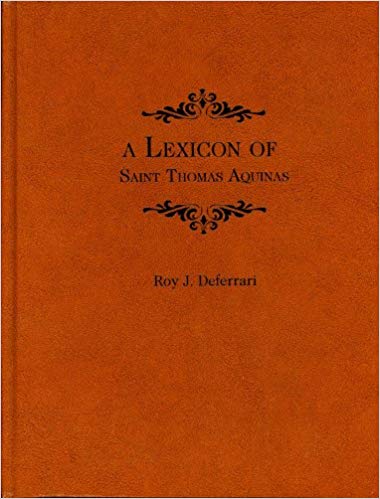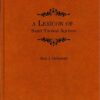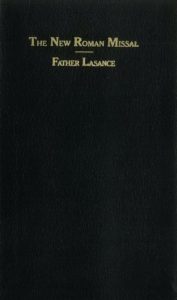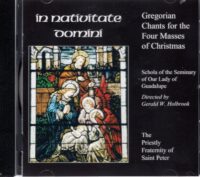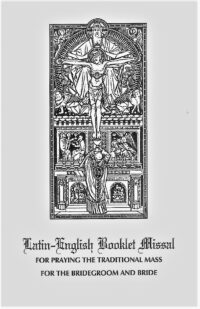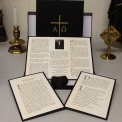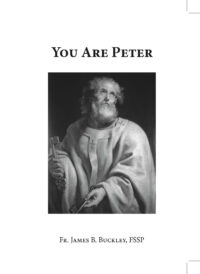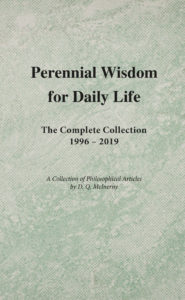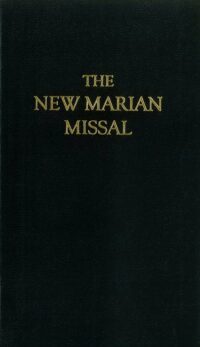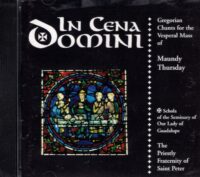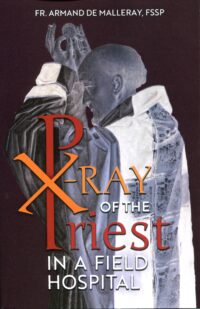| Publisher | Loreto Publications |
|---|---|
| Pages | 1185 |
| ISBN or UPC | 978-1-93027-845-5 |
| Page Count | 1185 |
| Book Style | Hardcover |
The Lexicon of St. Thomas
$70.00
Because Church Latin has never been in colloquial use, its standards are set in stone (or ink, if you will). It has never changed (except by the addition of new theological or canonical terms) since the Church adopted it. Many of the more gifted fathers and doctors have made use of the poetic beauty of classical Latin, but when one comes to the Latin of the Middle ages (and, pre-eminently, the Latin of Saint Thomas Aquinas), the beauty is far more prosaic; it has that angelic simplicity that comes with the clarity of ordered thought. Not that the angelic doctor never incorporates the genius of classical expression, for he does, but generally speaking, especially in the Summa Theologica, he avoids that. The Summa was originally written somewhat in the line of lecture notes from which to teach his students at the university of Paris. In fact, his closest disciples edited the entire work under the saint s direction, while finishing the uncompleted last section on the sacraments after his death.
In order to understand the thought of Saint Thomas one must have a teacher who understands the thought of a Latin doctor of the thirteenth century. No one, even if he has more than a basic knowledge of Latin, can just pick up the Summa Theologica and presume that by reading the original language he will fully appreciate the mind of this doctor. No, one needs a teacher who has a command of the language s philosophical and theological syntax and who can, not just translate the Latin text literally, but transmit the meaning of a phrase in its particular context. Even if one is a seminary student fortunate enough to have a good Latinist to help him through the Summa, one will not have that teacher at hand for more than a few semesters. To fully appreciate the thought of Saint Thomas, and utilize his wisdom throughout one s life, one needs a ready guide that will help him understand the original text without having always to depend on someone else s translation. That ready guide is Dr. Roy Deferrari s twelve hundred page Lexicon of Saint Thomas Aquinas.
Published in 1948, it is based on the greatest of the doctor communis works, the Summa Theologica, together with selected passages from other writings of the saint. There is a tremendous advantage in utilizing a lexicon for specific definitive information rather than a dictionary. Loreto would also like to highlight what a worthy response this production is to Pope Leo XIII s encyclical, Aeterni Patris, issued in 1880, on the Restoration of Thomistic Philosophy. Many seminaries and theologates are now coming to grips with the terrible effects on the unity of the Church (and its doctrine) that the abandonment of Latin has brought about. Just as the royal prophet lamented before God over the evils heaped upon him three thousand years ago, Usquequo, Domine? (How long, O Lord? Psalm 12), faithful Catholics today keep repeating this same prayer in hope. One good sign is the fact that, though small in number, there is a vibrant new wave of serious priests and levites who want to restore the materna lingua ecclesiae. It is about time! Deo volente et Deo gratias.
This lexicon is for all those who love the Summa, who love Saint Thomas, and who love the Church and her adopted tongue.
Because Church Latin has never been in colloquial use, its standards are set in stone (or ink, if you will). It has never changed (except by the addition of new theological or canonical terms) since the Church adopted it. Many of the more gifted fathers and doctors have made use of the poetic beauty of classical Latin, but when one comes to the Latin of the Middle ages (and, pre-eminently, the Latin of Saint Thomas Aquinas), the beauty is far more prosaic; it has that angelic simplicity that comes with the clarity of ordered thought. Not that the angelic doctor never incorporates the genius of classical expression, for he does, but generally speaking, especially in the Summa Theologica, he avoids that. The Summa was originally written somewhat in the line of lecture notes from which to teach his students at the university of Paris. In fact, his closest disciples edited the entire work under the saint s direction, while finishing the uncompleted last section on the sacraments after his death.
In order to understand the thought of Saint Thomas one must have a teacher who understands the thought of a Latin doctor of the thirteenth century. No one, even if he has more than a basic knowledge of Latin, can just pick up the Summa Theologica and presume that by reading the original language he will fully appreciate the mind of this doctor. No, one needs a teacher who has a command of the language s philosophical and theological syntax and who can, not just translate the Latin text literally, but transmit the meaning of a phrase in its particular context. Even if one is a seminary student fortunate enough to have a good Latinist to help him through the Summa, one will not have that teacher at hand for more than a few semesters. To fully appreciate the thought of Saint Thomas, and utilize his wisdom throughout one s life, one needs a ready guide that will help him understand the original text without having always to depend on someone else s translation. That ready guide is Dr. Roy Deferrari s twelve hundred page Lexicon of Saint Thomas Aquinas.
Published in 1948, it is based on the greatest of the doctor communis works, the Summa Theologica, together with selected passages from other writings of the saint. There is a tremendous advantage in utilizing a lexicon for specific definitive information rather than a dictionary. Loreto would also like to highlight what a worthy response this production is to Pope Leo XIII s encyclical, Aeterni Patris, issued in 1880, on the Restoration of Thomistic Philosophy. Many seminaries and theologates are now coming to grips with the terrible effects on the unity of the Church (and its doctrine) that the abandonment of Latin has brought about. Just as the royal prophet lamented before God over the evils heaped upon him three thousand years ago, Usquequo, Domine? (How long, O Lord? Psalm 12), faithful Catholics today keep repeating this same prayer in hope. One good sign is the fact that, though small in number, there is a vibrant new wave of serious priests and levites who want to restore the materna lingua ecclesiae. It is about time! Deo volente et Deo gratias.
This lexicon is for all those who love the Summa, who love Saint Thomas, and who love the Church and her adopted tongue.
Related products
-
Perennial Wisdom 4-Volume Set (hard cove
$54.95Original price was: $54.95.$40.00Current price is: $40.00. Add to cart

